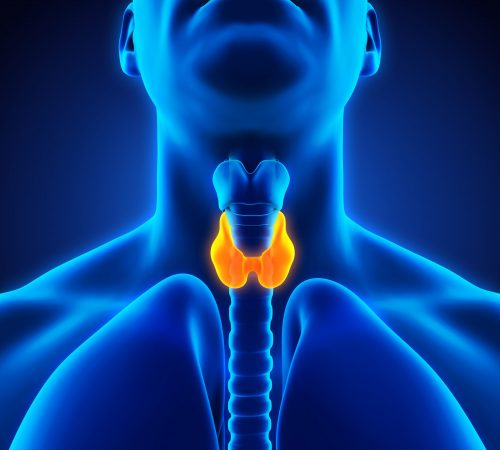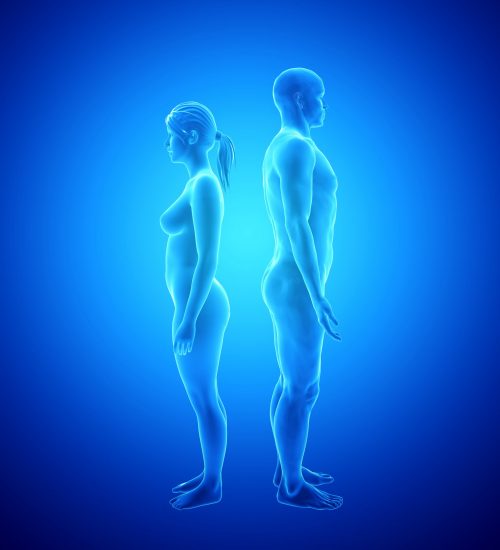Kick start the New Year the right way – Train hard, eat clean, set goals, stay focused, don’t give up!
Are you a New Years Resolutioner?
It’s that time of year again in the gym, the New Years Resolutioners are here. Your regular parking spot is taken, your normal locker is being used, the gym floor is heaving with unfamiliar bodies, the bicep boys are standing in front of the mirrors and your normal routine is disrupted. Fortunately, the squat rack is empty, the squat rack is always empty.
We are all creatures of habit to some degree, it might seem mundane at times but that’s not necessarily a bad thing. It allows us to refine and hone our efforts to achieve the intended goal. Skills are learned and refined through repetition and time. Health is not a single trip to the health food shop, joining the gym and getting a few more early nights in January, then going back to your old routine. It’s a lifestyle you need to adopt for guess what? The rest of your life. For sure, see the new year as a fresh start, a chance to redefine your goals and aspirations; but make no mistake, the road is long and hard, lined with challenges, but that’s what makes the reward for your perseverance and dedication so much more rewarding. If things come too easily there’s no real sense of achievement.
“Only one who devotes himself to a cause with his whole strength and soul can be a true master. For this reason mastery demands all of a person.” – Albert Einstein
We have been bombarded with motivational quotes like ‘just do it’, ‘no pain no gain’, ‘embrace the grind’, ‘go hard or go home’.
After Conor McGregor, the now undisputed Featherweight UFC champion knocked out Jose Aldo in 13 seconds he was quoted as saying:-
“This is an obsession. Talent does not exist, we are all equals as human beings. You could be anyone if you put in the time. You will reach the top, and that’s that. I am not talented, I am obsessed.”
This is the attitude you need to adopt.
Where to start?
There are three key elements to health; nutrition, lifestyle & exercise. You must have all three in check if you want to be healthy and strong. Exercise stimulates the sympathetic nervous system, an involuntary autonomic system that prepares you for fight or flight, it causes your metabolic rate to rise (which is a good thing), it causes more calories to be burnt, it allows you react quickly and run away from that sabre toothed tiger. It is however catabolic, it utilises stored energy and it causes stress on your body. You only recover and grow when it’s safe to do so, this involves the parasympathetic nervous system, the other part of your involuntary nervous system, this aids digestion and recovery. Makes sense doesn’t it? Exercise to stimulate your body to grow, and then eat and rest to allow the process to happen. That’s why so many people fail towards the end of January, they’ve over exercised and not allowed adequate time for the body to recover and grow. We are all too impatient, in too much of a rush to get to the finish line, anything worthwhile takes time. I like this saying ‘Success isn’t owned. It’s leased. And rent is due everyday’.
It’s not all your fault, there is so much misinformation out there, the diet industry is a wonderful business model, the gym isn’t actually interested in you coming to use their facilities on a regular basis, it’s about subscriptions and profit. Make no mistake, it’s all window dressing.
Why is nutrition the most important piece in the jigsaw?
You may have heard, you can’t out exercise a bad diet; nutrition is the most important component in health in my opinion. You need a certain amount of calories every day just to live, to tick over if you will. If you don’t provide your body with the necessary fuel, it will break down. However, unlike a car it has the capacity to adapt so that you can still function, it will literally start eating itself to provide you with enough fuel to live.
Nutrition is not complicated either. If you think about it, it all makes perfect sense…
Eat real food – What are you? The Terminator, a cybernetic organism. Living tissue over a metal endoskeleton? No, you are a human being made up from living cells. So, eat food grown from the ground, meat from pastured animals, drink plenty of water; not artificial chemicals created in a laboratory.
You’ve got to fuel your body, you wouldn’t expect your car to run on an empty tank, it needs fuel, just like your body. You can’t expect your body to perform, recover and grow without the necessary building blocks. You wouldn’t do a long journey and fill the car up once you’ve reached your destination, so why do that with your body?
When it comes to supplements, they should do exactly that, supplement a healthy balanced diet, they should not replace real food. All those protein powders are a waste of money if you haven’t got the basics right.
How can you increase your testosterone levels through diet?
It is important to attain and maintain your optimal weight for your body to produce testosterone. Males who are obese tend to have lower Testosterone(1).
Research shows that a diet with less than 40 percent of energy as fat (and that being mainly from animal sources i.e. saturated) lead to a decrease in testosterone levels(2). Other healthy fats include avocados, almonds, peanuts, walnuts, sunflower seeds, coconut oil, salmon and olives.
Refined sugar is poison, not only does sugar contribute to obesity, it also causes Insulin levels to spike. It has a direct effect on the testes lowering testosterone(3).
In order for your body to be able to produce optimal levels of testosterone naturally, it is suggested you have a healthy balanced diet high in:-
- Vitamin A – Directly involved in testosterone production(4), it also decreases oestrogen production in the male testes. It is found in cod liver oil, liver, sweet potato, carrots, broccoli, butter, kale, spinach, pumpkin.
- Vitamin D(5) – Found in cod liver oil, salmon, tuna, mackerel, milk, eggs, liver, cheese… & sunlight.
- Zinc(6) – Found in oysters, chicken, cheddar cheese, cashews, almonds, milk, red meat, pumpkin seeds, salmon.
You can also boost your intake of Branch Chain Amino Acids (BCAA) from foods such as Whey Protein. Supplements should do just that, supplement a healthy balanced diet. Research suggests that BCAAs result in higher Testosterone levels, particularly when taken along with resistance training(7).
What types of exercise should I be doing?
Exercise increases your basal metabolic rate so that you essentially burn more energy; in part because you are utilising energy through exercise, but also in time because of an increase in lean muscle mass. The more muscle mass you have, the more energy is needed to move your limbs. Sprinters can’t keep up with marathon runners for a number of reasons, but one is the sprinter can’t get enough fuel through food to be used as energy to power his muscles for the same length of time.
Strength training and High Intensity Interval Training (HIIT) are associated with increased Testosterone levels(8). Not only are you on the road to getting stronger through the type of training you do, you will also increase your natural testosterone production which will further increase those gains!
A word of caution, if you exercise too much you’ll produce cortisol, a stress hormone which is catabolic. There’s lots of machismo over the internet about over-training being a myth. For sure most people don’t over-train, aches and pains after exercise are typically due to poor conditioning, good old DOMS (Delayed Onset Muscle Soreness), trying to run before you can walk. If you’re a serious athlete, you’ll notice those that say over-training is a myth are all larger than life comic book characters who are all claiming to be ‘natty’.
How about lifestyle?
It is important to get an adequate night’s sleep as most of the day’s testosterone is produced whilst you are resting. Stress & missing meals (especially breakfast) causes your body to release the catabolic hormone cortisol, which blocks the effect of testosterone(9).
Another reason to pack up the fags and cut down boozing, they both lower testosterone levels. Alcohol is actually toxic to the testes, reducing Testosterone production.
If you have a past history of Anabolic Steroid use, you are at risk of suppressing the Hypothalamic-Pituitary axis from producing Testosterone which causes reversible testicular shrinkage and reduced fertility.
If you are a snorer who often wakes up unrefreshed, you might have Obstructive Sleep Apnoea. Both sleep fragmentation and sleep apnoea reduce testosterone levels(10).
Some medications are associated with lowering Testosterone levels:-
- Antidepressants
- Carbamazepine
- Antihypertensives
- Antipsychotics
- Cholesterol lowering drugs
- Other – opiates
How TRT helps?
Testosterone, the male sex-hormone it is responsible for increased libido, improved sexual function, improved cognition, increased energy and drive, decreased visceral fat distribution, increased bone strength, improved insulin sensitivity and an improved lipid profile. It is anabolic, therefore it is also responsible for increased lean muscle mass, which is obviously of use if you want to be bigger, stronger and faster.
As previously stated, exercise is not anabolic, it is catabolic, you can only grow when you rest. If your testosterone levels are low, you won’t achieve your potential, you’ll struggle to repair and recover in time for your next training session. Exercise is essentially the catalyst to grow but it is not the mechanism by which it happens. It is understood that when you stress your muscles, this causes little micro-tears in the muscle fibre which initiates the process of repair and growth. Testosterone is the hormone that speeds up recovery and growth, but you still need the building blocks of food and rest for the process to occur.
If your testosterone level is low, this process will be hampered. Having an optimal testosterone level will help you achieve your genetic potential. Which brings us on to the subject of Anabolic Steroids. Anabolic Steroids are synthetic versions of Testosterone, most were designed by the pharmaceutical industry to help immunocompromised and cancer patients improve their overall well being. They have been termed Performance Enhancing Drugs for a reason, athletes recognised the benefits of these compounds which allowed them to gain a unfair advantage over their competitors.
When your testosterone levels are clinically low, adjusting your lifestyle and addressing your nutrition and training properly may not be enough to restore your testosterone to a healthy level. Testosterone Replacement Therapy may need to be taken in conjunction with adopting a healthy lifestyle.
Here at the Men’s Health Clinic we adhere to the British Society for Sexual Medicine guidelines. The aim is to restore your testosterone levels to an optimal level using bioidentical hormones. Increase your lean muscle mass, bone mineral density and decrease your visceral fat distribution(11); feel younger with the wisdom of today.
Look at your lifestyle, your diet and your training, then use science to help us let you achieve your genetic potential. Book your Testosterone Replacement Therapy Consultation today.
So… baby steps, every champion was a contender that refused to give up.
References:-
(1) Urology. 2015 Dec 29. pii: S0090-4295(15)01182-6. doi: 10.1016/j.urology.2015.12.030 http://www.ncbi.nlm.nih.gov/pubmed/26743389
(2) J Steroid Biochem. 1984 Jan;20(1):459-64. http://www.ncbi.nlm.nih.gov/pubmed/6538617
(3) Clin Endocrinol (Oxf). 2013 Feb;78(2):291-6. doi: 10.1111/j.1365-2265.2012.04486.x. http://www.ncbi.nlm.nih.gov/pubmed/22804876
(4) Genet Epidemiol. 1988;5(1):43-59. http://www.ncbi.nlm.nih.gov/pubmed/3360302
(5) Horm Metab Res. 2011 Mar;43(3):223-5. doi: 10.1055/s-0030-1269854. Epub 2010 Dec 10. http://www.ncbi.nlm.nih.gov/pubmed/21154195
(6) Neuro Endocrinol Lett. 2006 Feb-Apr;27(1-2):247-52. http://www.ncbi.nlm.nih.gov/pubmed/16648789
(7) J Strength Cond Res. 2010 Apr;24(4):1125-30. doi: 10.1519/JSC.0b013e3181c7c655. http://www.ncbi.nlm.nih.gov/pubmed/20300014
(8) Asian J Sports Med. 2015 Dec;6(4):e23808. doi: 10.5812/asjsm.23808. Epub 2015 Dec 1. http://www.ncbi.nlm.nih.gov/pubmed/26715965
(9) Endocrinology. 1981 Jun;108(6):2142-8. http://www.ncbi.nlm.nih.gov/pubmed/6262050/
(10) Braz J Otorhinolaryngol. 2015 Dec 17. pii: S1808-8694(15)00241-4. doi: 10.1016/j.bjorl.2015.09.004 http://www.ncbi.nlm.nih.gov/pubmed/26749455
(11) Aging Male. 2013 Jun;16(2):38-47. doi: 10.3109/13685538.2013.773420. Epub 2013 Apr 12. http://www.ncbi.nlm.nih.gov/pubmed/23581697


